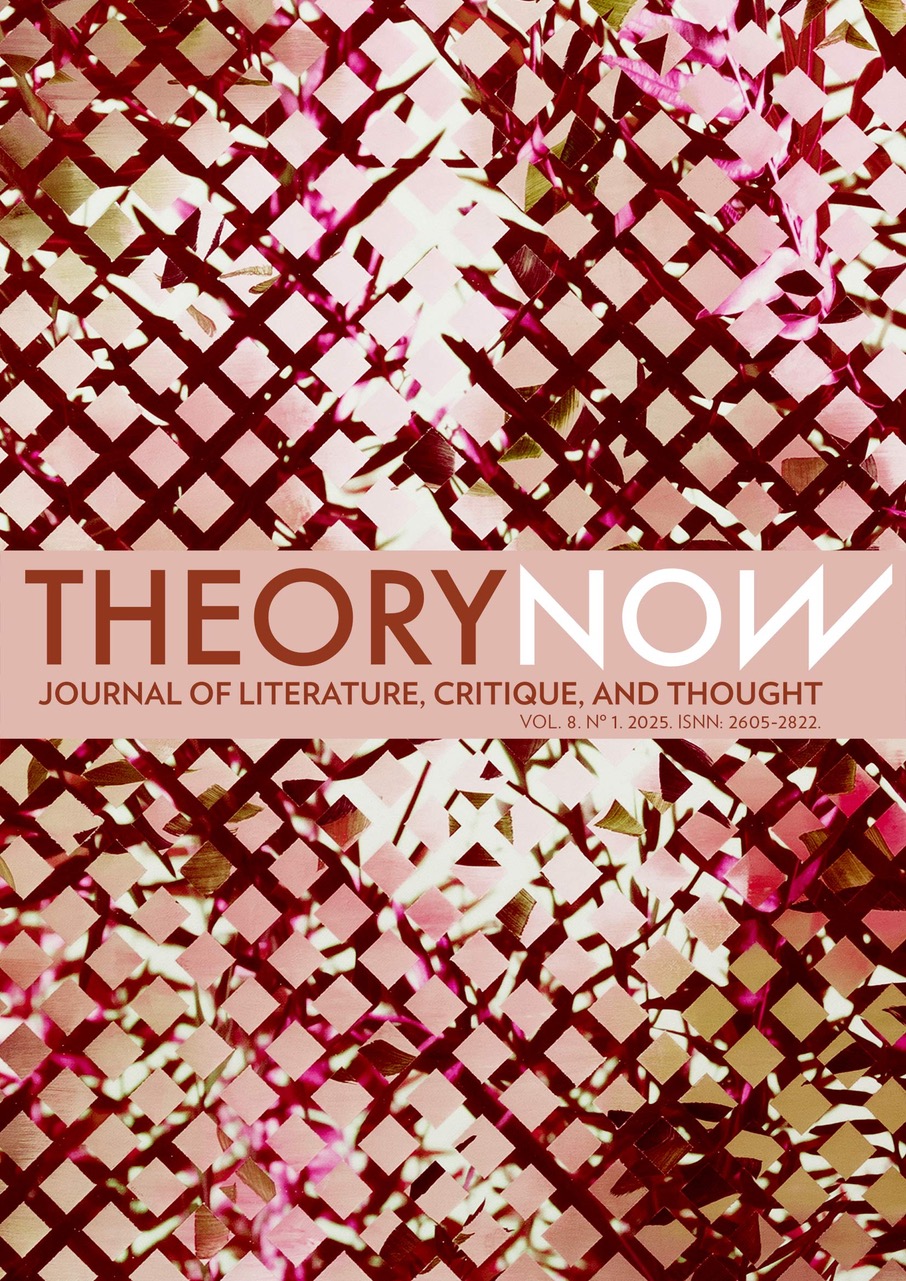Ecocriticism in the Twenty-First Century (and for the Centuries to Come)
Limits, reparations, alternative poetics
DOI:
https://doi.org/10.30827/tn.v8i1.32167Keywords:
Ecocriticism, Limits, Reparations, Alternative poeticsAbstract
Disciplinary inertia is so powerful that the advantages of adopting ecological thinking in the field of the Humanities have not always been recognized, nor have they always been welcomed. This is although, more than ever before, the collective consciousness has embraced the idea that planet Earth is an ecosystem of which humanity is a part, and in which humanity is the principal cause of the adverse conditions for life that have been increasingly intensifying since the Industrial Revolution and the establishment of capitalism as a globalized economic system.
Downloads
References
Armiero, Marco. Wasteoceno. Madrid, Catarata, 2023.
Binns, Niall. “Ecocrítica en España y Lationamérica”. Ecozon@. European Journal of Literature, Culture and Environment, vol. 1, no. 1, 2010, pp- 132-135. https://doi.org/10.37536/ECOZONA.2010.1.1.331
Flys Junquera, Carmen, José Manuel Marrero Henríquez et al., eds. Ecocríticas. Literatura y medio ambiente. Frankfurt, Madrid, Iberoamericana, 2010.
Freire, Paulo. Pedagogía del oprimido. Montevideo, Tierra Nueva, 1970, www.servicioskoinonia.org/biblioteca/general/FreirePedagogiadelOprimido.pdf 2 May 2024.
Galeano, Eduardo. Las venas abiertas de América Latina. Madrid, Siglo XXI, 2003.
González Díaz, Francisco. Cultura y turismo. Las Palmas de Gran Canaria, Tipografía del “Diario”, 1910, https://hdl.handle.net/20.500.12285/mdcte/603 2 May 2024.
González Gil, Isabel. “El giro performativo en poesía: perspectivas teóricas y nuevos lenguajes”. Tropelías: Revista De Teoría De La Literatura y Literatura Comparada, vol. 9, 2023, pp. 19-33. https://doi.org/10.26754/ojs_tropelias/tropelias.202399542
Grewe-Volpp, Christa. “Turning into a Potted Plant: A Plant Studies' Approach to Han Kang's Short Story ‘The Fruit of My Woman’”, Theory Now. Journal of Literature, Critique, and Thought, vol. 7, no. 2, 2024, pp. 37-55. https://doi.org/10.30827/tn.v7i2.29560
Mancuso, Stefano y Alessandra Viola. Sensibilidad e inteligencia en el mundo vegetal. Barcelona, Galaxia Gutenberg, 2023.
Marrero Henríquez, José Manuel. “Ecocrítica e hispanismo”. Ecocríticas. Literatura y medio ambiente, Carmen Flys, José Manuel Marrero Henríquez et al. (eds.), Frankfurt, Madrid, Iberoamericana, 2010, pp. 193-218.
_____. “Ecocriticism of the Anthropocene and the Poetics of Breathing”. Hispanic Ecocriticism, José Manuel Marrero Henríquez (ed.), Berlin, New York, Peter Lang, 2019, pp. 19-47.
_____. “Hacia una filología verde: sobre Francisco González Díaz (1866-1945), ecologista Avant la lettre”. Hispanófila, vol. 202, 2024, pp. 21-35.
____. “Vegan Cervantes: Meat Consumption and Social Degradation in Dialogue of the Dogs”. The Routledge Handbook of Vegan Studies, Laura Wright (ed.), New York, Routledge, 2023, pp. 89-100.
Mougoyanni Hennessy, C. “Nueva ruralidad en la novela española contemporánea: un enfoque ecocrítico”. Pangeas. Revista Interdisciplinar de Ecocrítica, vol. 3, 2021, pp. 7-15. https://doi.org/10.14198/PANGEAS.18890
Nascimento, Evando. El pensamiento vegetal. La literatura y las plantas. Santiago de Chile, Ediciones Mimesis, 2023.
Sánchez-León, Nuria. “El papel del arte en la transición ecosocial: casos anglosajones y españoles”. Humanidades ambientales. Pensamiento, arte y relatos para el Siglo de la Gran Prueba, José Albelda, José María Parreño y José Manuel Marrero Henríquez (eds.), Madrid, Catarata, 2018, pp. 147-163.
Solórzano Daniel G. y Tara J. Yosso. “Critical Race Methodology: Counter-Storytelling as an Analytical Framework for Education Research”. Qualitative Inquiry, vol. 8, no. 1, 2002, pp. 23-44. https://doi.org/10.1177/107780040200800103
Sullivan, Heather. “Bad Plants”. Theory Now. Journal of Literature, Critique, and Thought, vol. 7, no. 2 2024, pp. 12-36. https://doi.org/10.30827/tn.v7i2.28982
Published
How to Cite
Issue
Section
License
Theory Now. Journal of Literature, Critique, and Thought is an immediate open-access publication which is available at no cost for readers and authors alike. Authors are not charged any kind of fee for the editorial processing of their articles. Reading, downloading, copying, distributing, printing, searching, linking or reusing all published articles for non-commercial uses is allowed on the condition of citing the author, the journal and the editing body. All intellectual material published in this journal is protected under a Creative Commons Attribution-NonCommercial 3.0 Spain license.
Dissemination of the articles in social (Facebook, Twitter, Linkedin, etc.) and scientific networks (ResearchGate, Academia.edu, etc.), public repositories at universities and other institutions, blogs, personal or institutional websites, Google Scholar, ORCID, ResearchID, ScopusID, etc. is strongly encouraged. In all cases, the intellectual property of the articles and any possible monetary profits derived from them belong exclusively to the authors.













